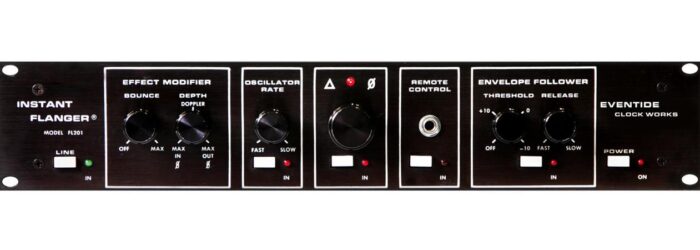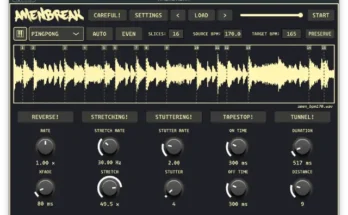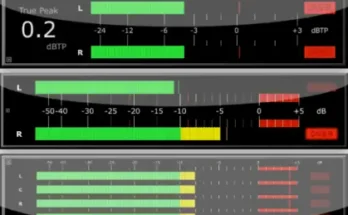Instant Flanger v3.4.0-R2R
Team R2R | 2024.06.09 | 2.9 MB
The Instant Flanger, released in 1975, was designed to simulate true tape flanging. Flanging first became popular in the 1960s when recording engineers discovered that they could mix the output of two tape machines, one running slightly slower than the other, and get a cool new effect. As its time-delay circuit produced many more “nulls” and offered a much deeper flanging effect than anything previously available, the Instant Flanger became widely used on many legendary recordings. If you’ve ever listened to Led Zeppelin’s “Physical Graffiti” album, you’ve heard its legendary sound.
Electronic Flanging: The Bucket Brigade Chip
Eventide’s first effects box from 1971, the Instant Phaser, was designed to simulate tape flanging but used a series of ‘all-pass’ filters rather than delay (this was before audio delay was practical). Flanging requires a relatively short delay, and that delay must be smoothly varied from ~0 to ~10msec to achieve the effect. Digital delays had recently been introduced, but they were prohibitively expensive for such a short delay. It was not until the invention of a chip called a Charge Coupled Device (CCD), commonly referred to as a Bucket Brigade, that the Instant Flanger was made possible. This chip, analog though it was, could be used to delay audio. We contacted its manufacturer, Mitsubishi, in Japan. As Jon D. Paul, the designer of the black-meter Omnipressor®, recalls:
Controls
Release – Determines the rate at which the Envelope Follower returns to a lower state after the loudest signal has passed. Clockwise on this control increases the release time and makes the Envelope Follower track more slowly.
Depth: Depth controls the mix of the swept-delay signal and the ‘dry’ signal. With the knob set to ‘noon’, only the varying delay is output, resulting in a doppler effect. Set to full counterclockwise, the output is an equal mix of the original signal and the varying delay added in phase. By adding the two signals in phase, low frequencies are reinforced. Set to full clockwise, the varying delay is added out-of-phase, resulting in a deep null at low frequencies down to nearly DC.
The Big Knob: The Big Knob allowed the user to manually control the delay with the LED’s brightness, indicating the amount of delay—dim for short delay and bright for max delay. Users could turn the knob to sweep the delay back and forth to create the doppler or flanging effect.
The Oscillator: The on-board LFO (Low Frequency Oscillator) automatically swept the delay. It varied the sweep rate from .05 Hz to 20 Hz. Of necessity, the oscillator was an analog circuit and consequently the sweep shape can only approximate that of a sine wave.
The Envelope Follower: The Instant Flanger incorporated one of the most important and popular innovations of the Instant Phaser, the ability to have the level of the signal vary the delay. The Threshold and Release knobs gave users the ability to accommodate different input signals.
Combined Controls: The Instant Flanger’s rich complement of ways to control the flanging effect manually, by the on-board oscillator (LFO), the signal’s envelope, or by remote control voltage (in any combination!) was quite the innovation. Obvious now, to be sure, and yet we know of no other effects device that offered this capability.
Bounce: The bounce control was designed to emulate the ‘bounce’ effect of a tape recorder’s servo motor trying to get back up to speed, which occurs in tape flanging after pressure is released from the flange.
* No iLok Driver installation is required to run.
* Our release loads faster and uses less memory than legit version.
Please REPORT in Comment Broken Links




